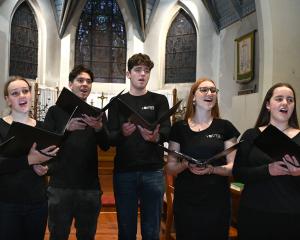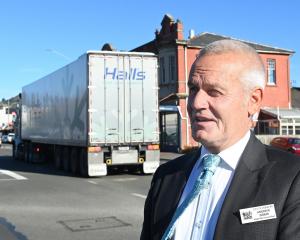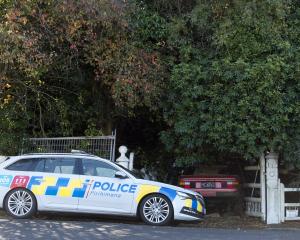Councillors considered the proposal at Monday's full council meeting, but debate erupted over whether the council should agree to proceed without first consulting its community.
There were also concerns about a lack of detail on the benefits of the new approach and insufficient information about the possible relocation of some fire appliances away from smaller centres.
Eventually, with councillors divided and staff still seeking answers, it was agreed to let the proposal lie on the table until more information could be considered at the next full council meeting on October 7.
The decision meant Dunedin City Council and Queenstown Lakes District Council were still to sign up to the proposed new structure, while Central Otago, Waitaki and Clutha District Councils had all agreed to.
The restructuring, if agreed, would result in Otago's existing rural fire authorities - run by individual councils and the Department of Conservation - being replaced by a single new authority spanning Otago.
The new entity would have its own chief executive, staff and dedicated vehicle fleet and was expected to deliver an improved service over time.
''This may have an impact on rural fire appliances based at Middlemarch, Waikouaiti and Portobello that are currently available for the use of the volunteer fire brigades in those towns,'' the report said.
A report to all councils detailing the proposal had been prepared by Central Otago District Council chief executive Phil Melhopt, on behalf of Otago's rural fire authorities.
However, Cr Richard Thomson told Monday's meeting he was worried there was insufficient information about the likely relocation of appliances, as well as the costs, benefits and other issues.
Mr Melhopt said the focus initially was on amalgamating management and governance structures.
It was ''premature'' to talk about the future location of appliances, although that would be considered by the new authority in time, he said.
Cr Thomson said that suggested there was reason to be concerned, albeit later, and worried a loss of appliances could lead to community requests for the council to fill the gap.
''That's why it seems to me quite a relevant factor.''
Cr Jinty MacTavish agreed, saying she wanted reassurance communities would not have a drop in service levels.
Mr Melhopt said he could not promise no change, although responses to motor vehicle and urban fires would not be compromised in favour of the response to rural fires.
Council infrastructure and networks general manager Tony Avery said it was likely there was too much equipment in some parts of Otago and not enough in other parts, and the new entity would address that.
However, councils would still have input through representation on the new authority's governance board, he said.
Councillors were asked to decide between consulting the community before making a decision on the restructuring, or agreeing to the proposal and allowing the national rural fire authority to consult on the change.
Mr Melhopt urged councillors to move quickly and agree to the proposal, allowing the structure to be introduced by mid-2014, ahead of the following summer's fire season.
Any further delay would reduce the new structure's lead-in time to summer, and ''make us uncomfortable'', he said.
However, councillors baulked at the choice, some supporting the new structure while others wanted more information before deciding.
''I'm reluctant to hand over our power to make that decision without having those questions appropriately answered,'' Cr Thomson said.
Cr Lee Vandervis supported speedier action, saying having idle resources in small communities while others were in need was ''abhorrent''.
However, after Cr Syd Brown failed in a bid to secure a compromise, councillors instead agreed to leave the matter to the October 7 meeting.












